1. The Six Million Dollar Man (1974–1978)
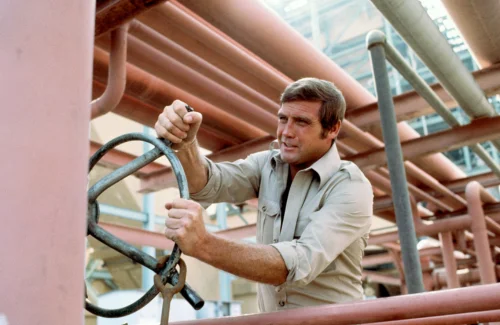
Steve Austin, a former astronaut turned bionic man, captured the imaginations of viewers in The Six Million Dollar Man. Lee Majors starred as Austin, whose enhanced abilities made him a one-man army in a world of espionage and danger. The show was a smash hit in the 1970s, blending science fiction with action in a way that captivated audiences. Its iconic catchphrase, “We can rebuild him,” became synonymous with its premise.
Despite its initial popularity, The Six Million Dollar Man is often overlooked today, overshadowed by other action heroes like The A-Team. The series laid the groundwork for future shows exploring enhanced abilities and bionic technology. The Six Million Dollar Man was groundbreaking, not just for its effects but also for its portrayal of a hero who was both human and machine. Even years after its cancellation, the show’s influence on pop culture remains evident, especially in the realm of superhero and sci-fi media.
2. Charlie’s Angels (1976–1981)
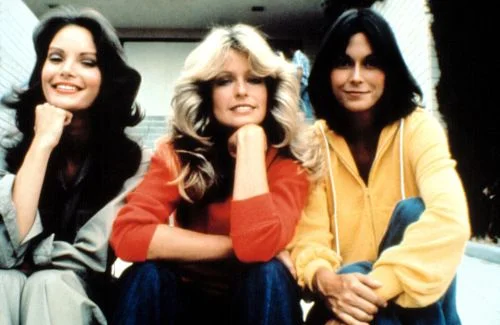
This iconic series introduced the world to the glamorous trio of private detectives: Jill, Kelly, and Sabrina, played by Farrah Fawcett, Jaclyn Smith, and Kate Jackson. Charlie’s Angels became a pop culture sensation, combining action, adventure, and a touch of glamour, all while keeping its trio of strong women in the lead. It was an instant hit, with Fawcett becoming a household name after the show’s debut.
Despite its massive popularity in the ’70s, Charlie’s Angels has been somewhat forgotten in the modern era, overshadowed by its many reboots and remakes. The show offered a fresh take on female empowerment, with the Angels solving cases while also showcasing their personal lives. Its cultural significance is undeniable, inspiring countless imitators and revivals. Even though the original series doesn’t get the attention it once did, it remains a defining example of ’70s television.
3. The Rockford Files (1974–1980)
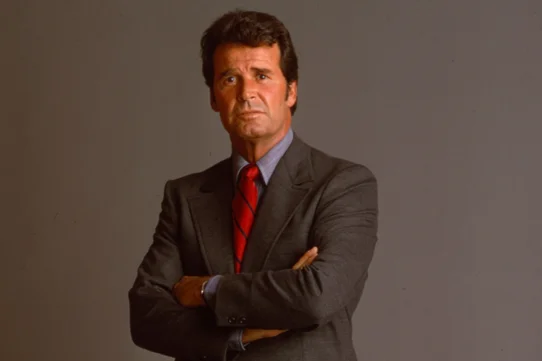
James Garner starred as Jim Rockford, a wisecracking, down-on-his-luck private investigator in The Rockford Files. The series expertly blended humor with drama, following Rockford as he navigated the seedy side of Los Angeles. The show was critically acclaimed, winning multiple awards and becoming one of the most beloved detective series of the ’70s.
Even though The Rockford Files was hugely popular during its time, it has faded somewhat from the public’s radar. While the series is often celebrated for Garner’s brilliant performance, its complex storylines and well-rounded characters also set it apart from other detective shows of the era. The show’s relaxed yet captivating style inspired future procedural dramas and remains a key influence on TV detective tropes.
4. Starsky & Hutch (1975–1979)
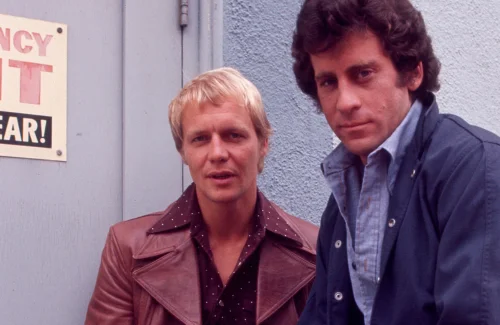
This action-packed cop series followed two detectives, Starsky and Hutch, played by Paul Michael Glaser and David Soul, as they took on the criminal underworld in a gritty, urban setting. Known for its fast-paced action and memorable characters, Starsky & Hutch quickly became a favorite, earning a loyal fanbase and spawning everything from toy cars to a 2004 movie remake.
Despite its success, Starsky & Hutch is now often overlooked in favor of other police procedurals from the ’70s. The series not only showcased thrilling car chases and street fights but also explored the deeper bonds of friendship and loyalty between the detectives. The dynamic between the leads, as well as the show’s often ground-breaking action sequences, made it an important precursor to many cop dramas that followed. Today, it’s remembered fondly by those who were fans of its combination of buddy-cop antics and heartfelt moments.
5. One Day at a Time (1975–1984)
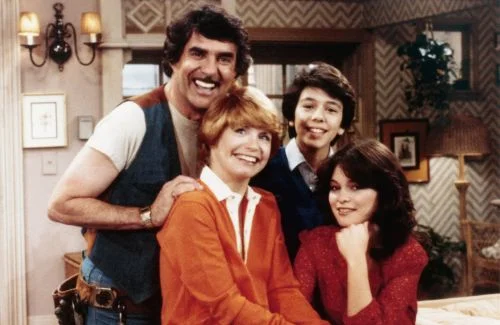
A sitcom that blended humor with poignant moments, One Day at a Time focused on a single mother raising two daughters while navigating the challenges of life. The show was notable for its honest portrayal of family life, dealing with issues such as divorce, teen pregnancy, and relationships. Bonnie Franklin’s portrayal of Ann Romano earned her critical acclaim, and the series struck a chord with audiences for its relatable characters and situations.
While it was beloved during its run and garnered a loyal fanbase, One Day at a Time seems to be somewhat forgotten today, especially in comparison to other sitcoms of the era. However, the show has experienced a revival through a reboot in the 2010s. One Day at a Time remains an important touchstone in television history for its nuanced take on family dynamics and the challenges of modern life, particularly for women raising children on their own.
6. The Bionic Woman (1976–1978)
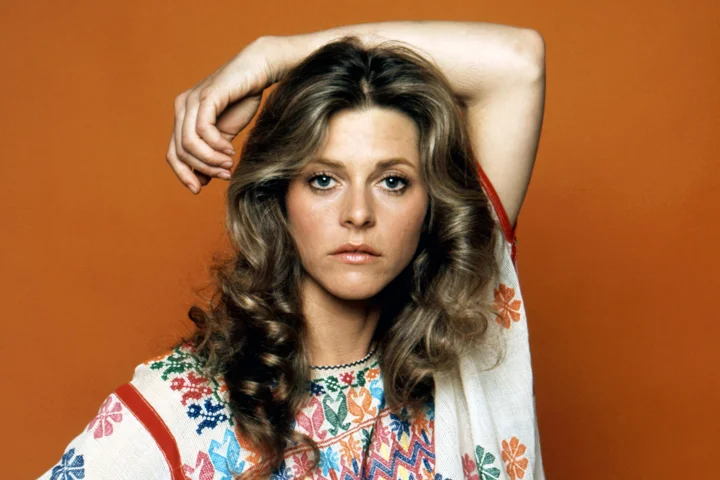
Following the success of The Six Million Dollar Man, The Bionic Woman introduced Jaime Sommers, played by Lindsay Wagner, as a former tennis star turned bionic secret agent. The series quickly gained a loyal following, featuring thrilling action and a strong female protagonist. It was groundbreaking in portraying a woman with superhuman abilities, tackling both her personal struggles and her missions.
While The Bionic Woman enjoyed success during its run, it’s often overshadowed by its predecessor, The Six Million Dollar Man, and the many superhero shows that followed. Despite this, the show’s impact on the portrayal of strong, independent women in television cannot be denied. Jaime Sommers was one of the first female action heroes, and the show laid the groundwork for future heroines in TV and film.
7. M*A*S*H (1972–1983)
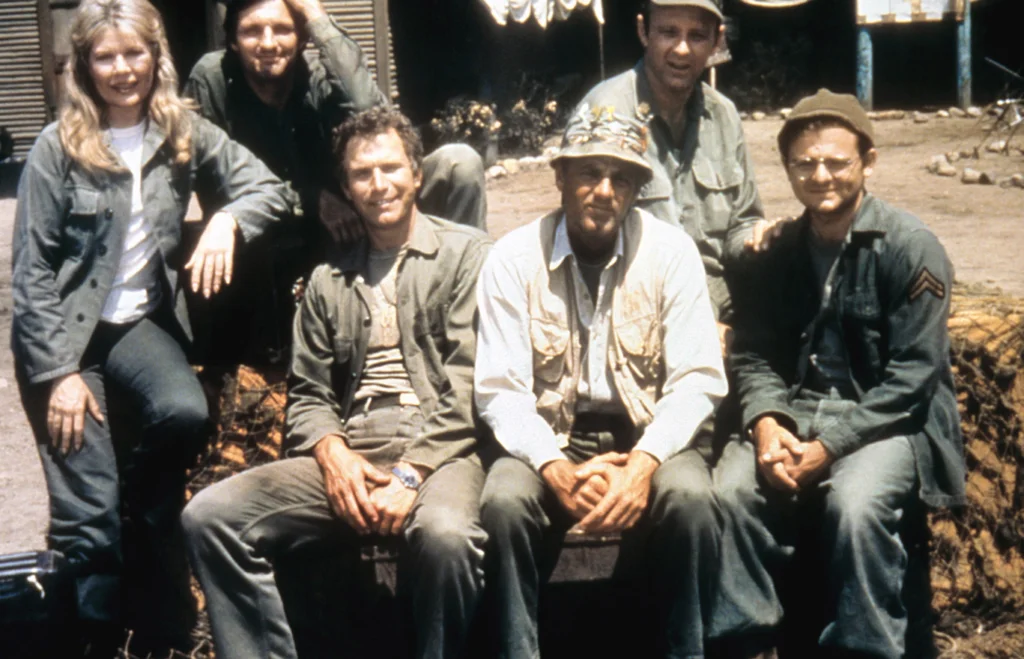
The M*A*S*H series, set during the Korean War, expertly blended comedy with drama to tell the stories of a group of doctors and nurses working in a mobile army surgical hospital. The show became a cultural phenomenon, known for its sharp satire, witty characters, and anti-war themes. The series, particularly its final episode, became one of the most-watched television events in history.
Even though M*A*S*H remains one of the most influential TV shows ever made, it is often overlooked in today’s discussions of television’s best. The series had a huge cultural impact, pushing boundaries in terms of what was considered acceptable for TV at the time. Today, it’s still remembered as a show that shaped the future of television, paving the way for more socially conscious sitcoms and dramas.
8. Good Times (1974–1979)
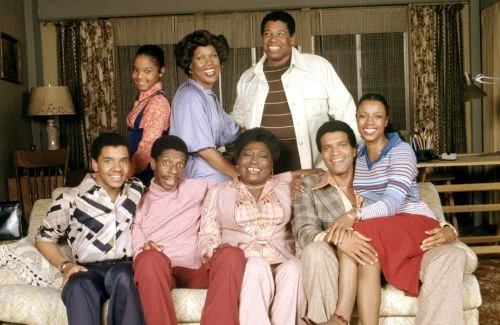
This sitcom followed the struggles and triumphs of an African-American family living in Chicago, with John Amos and Esther Rolle playing the parents, James and Florida Evans. The show was a milestone in TV history for its portrayal of a working-class Black family and became a favorite for its blend of humor and social commentary. It also marked a major shift in how African-American families were represented on television.
Though Good Times was groundbreaking, it’s often overshadowed by other ’70s sitcoms in modern discussions. The series tackled tough issues like poverty, racism, and the death of a parent, all while maintaining a light, relatable tone. Today, it is remembered fondly as a show that both entertained and educated, leaving a lasting impact on television history. It may not always be in the spotlight, but Good Times continues to resonate with fans for its emotional depth and cultural significance.
9. Fish (1977–1978)
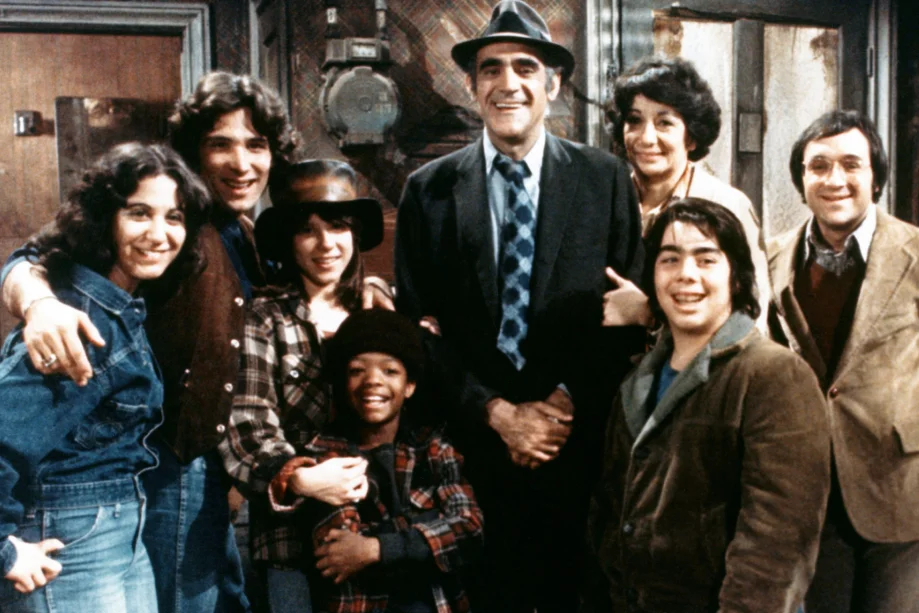
Fish was a spin-off of Barney Miller, focusing on the character of Detective Philip Fish, played by Abe Vigoda. This sitcom explored Fish’s transition from a seasoned cop to a detective in a quieter precinct, grappling with his life as a father and husband while dealing with the complexities of aging. Fish was notable for its unique blend of humor and heart, offering a more grounded take on family life and the trials of growing older.
Though Fish had its moments of success, it failed to capture the same audience as Barney Miller and was canceled after just one season. Despite this, the series stands out for its character-driven humor and the performances of Vigoda and his co-stars. Fish is remembered fondly by those who appreciated its mature take on comedy and its exploration of the everyday challenges facing its central character.
10. All in the Family (1971–1979)
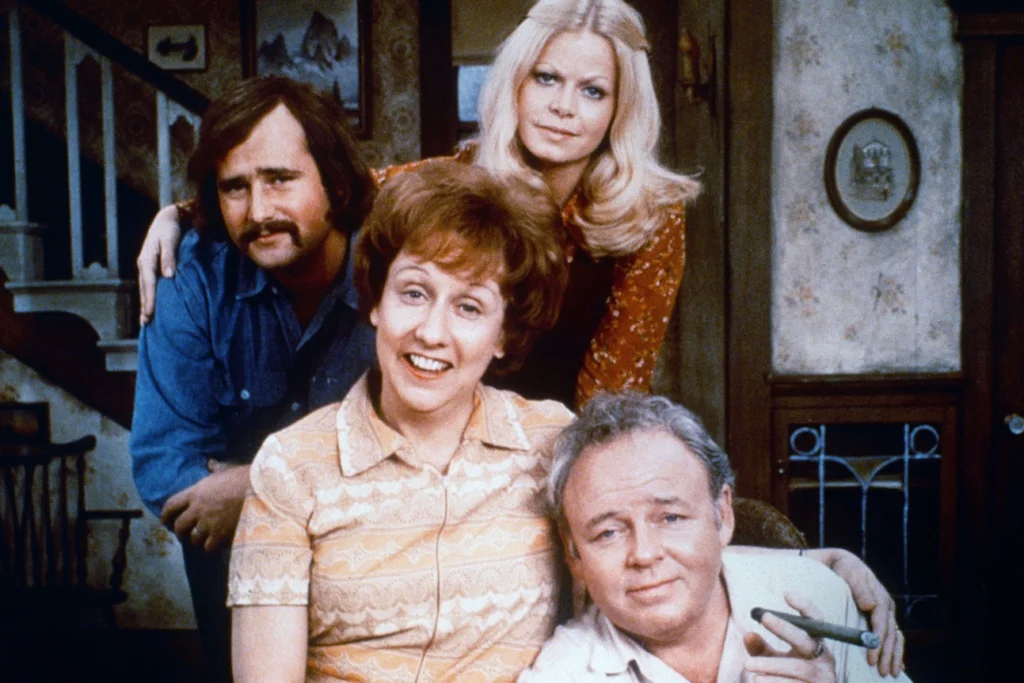
All in the Family revolutionized television by addressing controversial social issues like racism, feminism, and politics through the lens of the Bunker family. The character of Archie Bunker, played by Carroll O’Connor, became iconic for his bigotry and working-class mentality, offering biting commentary on American society. The show changed the face of sitcoms, making them a platform for social change.
Though All in the Family is now recognized as one of the greatest TV shows ever, it may not be as widely discussed in today’s media landscape. The series had a huge cultural impact, pushing boundaries in terms of what was considered acceptable for TV at the time. Today, it’s still remembered as a show that shaped the future of television, paving the way for more socially conscious sitcoms and dramas.
11. The Partridge Family (1970–1974)
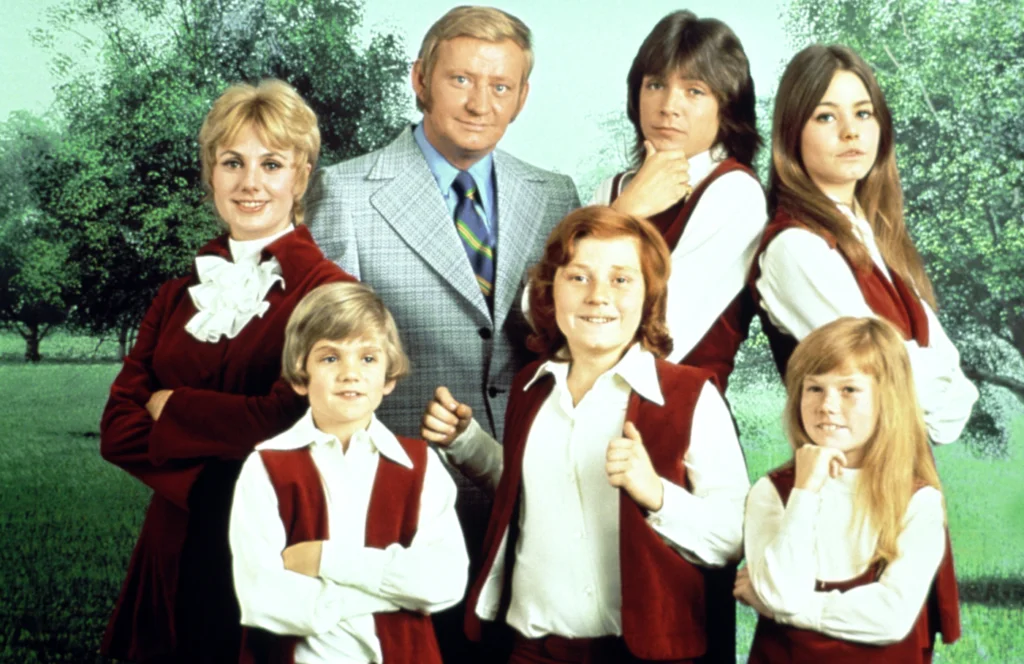
This musical sitcom about a widowed mother and her children forming a pop band captured the hearts of viewers in the early ’70s. Starring Shirley Jones and David Cassidy, The Partridge Family became a household name, with its catchy tunes and charming cast. The series was immensely popular during its run and produced hit songs like “I Think I Love You.”
Although it was a cultural sensation at the time, The Partridge Family is now often overshadowed by other ’70s shows. The series was not just a sitcom but also a launching pad for the musical careers of its cast. The Partridge Family remains a nostalgic favorite, remembered for its wholesome family dynamic and its influence on the pop culture of the era.
12. WKRP in Cincinnati (1978–1982)
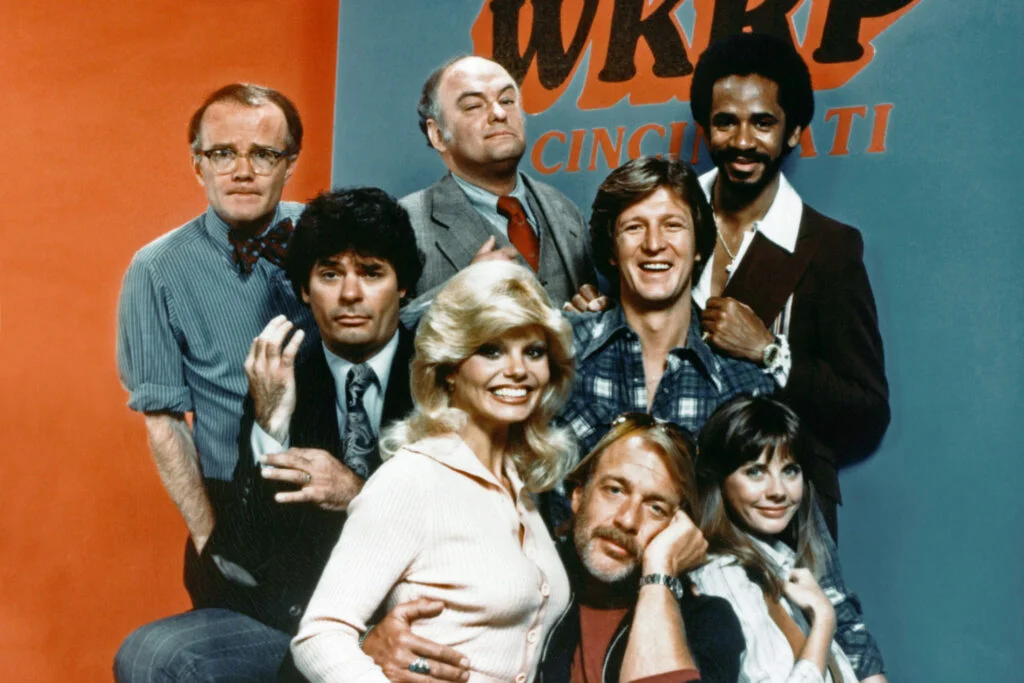
Set in a fictional radio station, WKRP in Cincinnati was a quirky sitcom that tackled the behind-the-scenes antics of a struggling radio station. The series was notable for its offbeat humor and memorable characters, including the lovable DJ Dr. Johnny Fever. It quickly became a cult classic, offering a humorous take on the radio industry and the eccentric personalities within it.
While WKRP in Cincinnati may have been a critical success, it struggled in the ratings and was canceled before it could fully reach its potential. The show has since gained a loyal fanbase and is remembered for its witty writing, great ensemble cast, and iconic moments. Though the series may be overlooked today, it remains one of the best examples of 1970s television humor.
13. The Mary Tyler Moore Show (1970–1977)
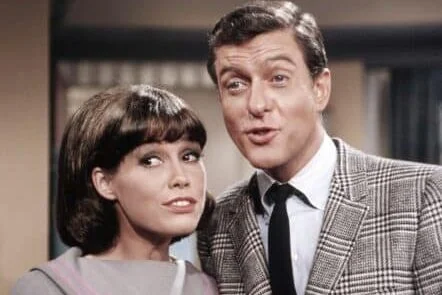
The Mary Tyler Moore Show was revolutionary for its portrayal of a single woman working in a newsroom, becoming a landmark in television history. Starring Mary Tyler Moore, the show was both comedic and dramatic, offering an honest, nuanced portrayal of a woman in the workforce. It was groundbreaking in how it depicted professional women as fully realized, multifaceted characters.
Though still highly regarded as a classic, The Mary Tyler Moore Show doesn’t always receive the recognition it deserves in contemporary discussions about ’70s TV. The show had a profound influence on the portrayal of women in media, offering a refreshing departure from traditional female roles. The Mary Tyler Moore Show set the stage for future TV shows that would feature strong, independent women in the workforce, making it one of the most important TV series of the era.


